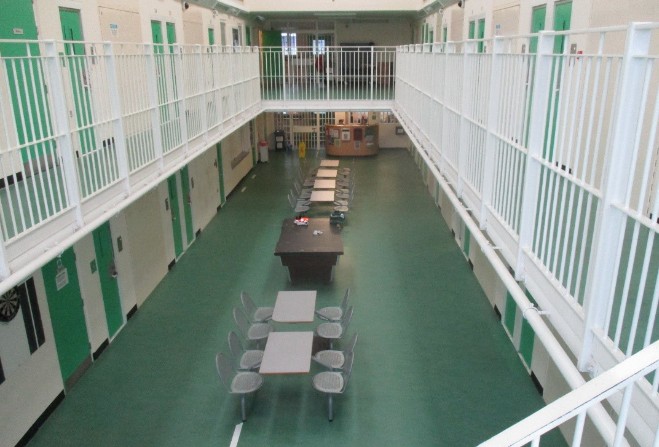
Inspection highlights 'serious deficit' with risk management at Isle of Man Prison
Most prisoners are released from the Isle of Man Prison without addressing their offending behaviour or risk of harm to others.
That’s the finding of HM Chief Inspector of Prisons after the first inspection of the facility in 12 years.
Inspectors visited the prison in Jurby between 27 February and 10 March and identified 14 areas of concern – six of which needed immediate attention.
You can find out more HERE.

Public protection
Public protection arrangements at the prison were found not to be robust and there was a lack of analysis of the risk of serious harm to other people.
Inspectors identified this as the ‘most serious deficit’ saying risk management plans, and information about offending behaviour, was not ‘on record’ to support the safe management of people in custody and after they are released.
In several cases the index offence (what the person was in prison for) was not described beyond the charge and there was no recorded information about the individual’s offending history.
This, they said, meant inmates were released from prison without addressing their issues – this included some who were serving long sentences for serious offences.
There was also a lack of intervention to help those serving shorter sentences to avoid reoffending in the future.
Assessments for day releases, and in the time following release, were also not found to focus enough on analysing and managing the risk of harm to others.
Inspectors said this meant that those working with the individual in custody, or the community, could not discern who might be at risk and in what circumstances.
Release, rehab and reoffending
Inspectors said they saw benefits to the integration of the prison and probation service leadership into a single structure in which the governor held responsibility for both functions.
The service was found to have ‘sound plans’ to improve public protection protocols and arrangements which – if implemented – would address the ‘substantial deficits’ in the area of risk management.
A team of senior forensic psychologists have also been brought in – working partly on-site and partly remotely.
Staff have also now been trained to deliver an in-depth ‘Life Minus Violence’ course which inspectors said was a ‘welcome development’; this programme runs for 12-months and is overseen by the forensic psychologists.
However for the many prisoners who might benefit from shorter interventions inspectors said input would continue to be very limited.
Education, work and activity
Inspectors also found most prisoners detained at the prison in Jurby spent very little time in education, work or activity placements to which they had been allocated.
Many prisoners who the prison considered to be employed fulltime were actually only occupied for 13.5 hours per week; this the inspectors said left them ‘seriously underemployed’.
The time prisoners spent out of cell also remained limited, at between six and eight hours a day, with the prison locked down at 5.15pm each day with no evening association.
Of the 90 prisoners assessed as part of the inspection the inspectors found only around half were routinely engaged in purposeful activity.
Education classes are provided by University College Isle of Man but the inspection determined that the curriculum did not include enough practical subjects to prepare inmates for employment after release with none of the jobs offering training or accreditation of skills.
The only vocational training was a recently introduced woodwork course which offered a level one qualification but inspectors were told plans were in place to introduce courses in basic electronics and cookery.
Too few prisoners attended education classes and the education manager – and her staff – had been directed by college managers not to go onto the wings to recruit students.
The proportion of prisoners enrolled had fallen from 55 per cent in 2020 to 44 per cent at the time of the inspection - payment for those attending education classes was less than for some jobs.
The inspectors deemed the prison did not have an accurate picture of ‘learning needs’ and not all prisoners who needed help with literacy, numeracy and additional learning needs could be identified.
Action plan
The Department of Home Affairs says it’s created an ‘action plan’ to address the concerns highlighted in the report with inspectors due to return in 2024.
You can find it in full HERE.
Declan Crawley is the Head of Community Rehabilitation and spoke to Tessa Hawley:
You can listen to a Newscast with the Prison Governor and Head of Probation Leroy Bonnick by clicking HERE.


 Isle of Man records lowest March rainfall since 1953
Isle of Man records lowest March rainfall since 1953
 Fire service warns of the dangers of wildfires
Fire service warns of the dangers of wildfires
 Post Office to halt non-postal services at Governor’s Hill store
Post Office to halt non-postal services at Governor’s Hill store
 Lord Street scheme WILL still go ahead
Lord Street scheme WILL still go ahead
